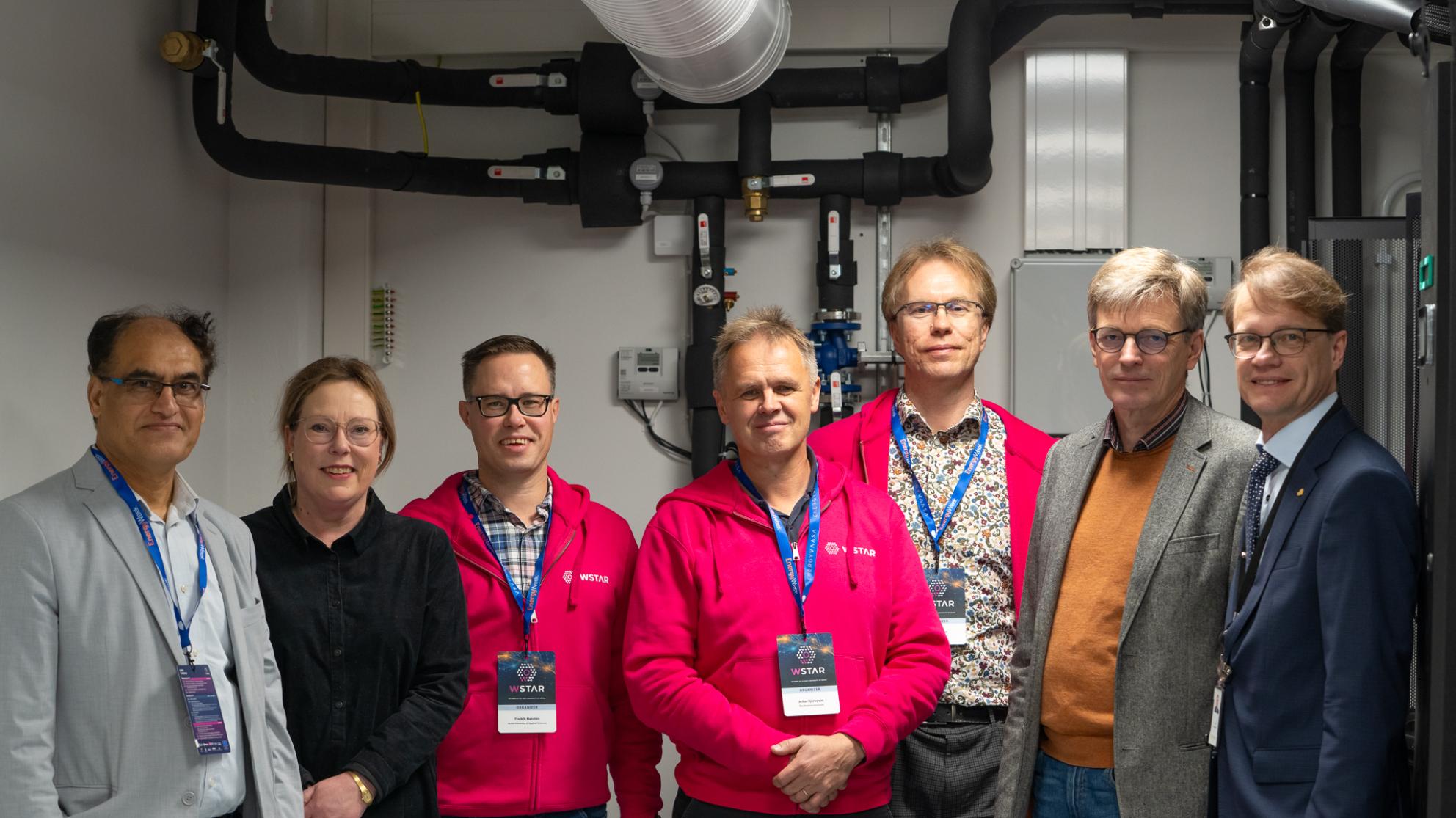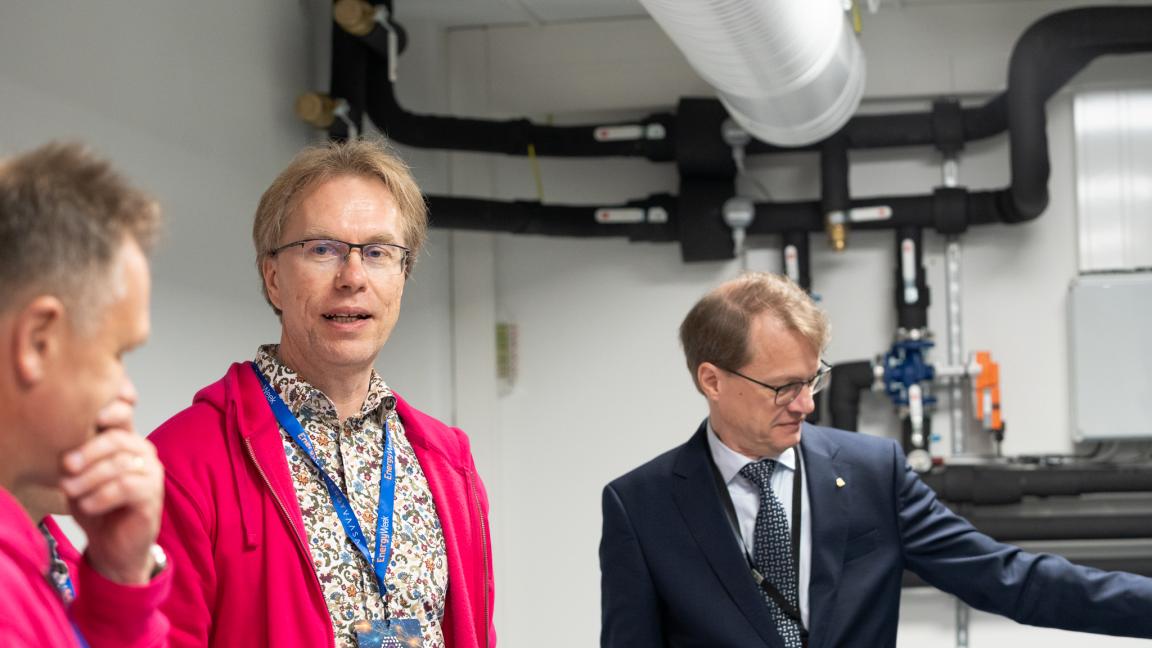A new zero-emission research environment completed in Vaasa – WSTAR offers solutions for data center energy efficiency
WSTAR – Wasa Zero Emission Data Centre is a joint research infrastructure of the University of Vaasa, Novia University of Applied Sciences, Vaasa University of Applied Sciences VAMK, and Åbo Akademi University. Its goal is to find sustainable solutions to the challenges posed by the rapidly growing data center industry.
As society becomes increasingly digitalised, data centers are being built at an accelerating pace. Their growing energy consumption can become a problem if energy efficiency is not simultaneously improved. Estimates suggest that data centers could account for up to 4% of Finland’s electricity consumption by 2030 unless efficiency is enhanced. Currently, Finnish data centers consume over 2 terawatt-hours of electricity annually, but only about 6% of the waste heat is utilised. The new EU Energy Efficiency Directive (EED) requires new solutions and sustainability metrics, which WSTAR aims to develop and test.
– Our goal is to explore how data centers can be built and operated in an energy-flexible and low-emission manner as we move toward zero emissions. WSTAR strengthens our role as a developer of sustainable technology and a promoter of the energy transition, while supporting regional innovation activities that address global challenges in energy efficiency and digitalisation, says project leader, Professor Petri Välisuo from the University of Vaasa.
A unique infrastructure for research on energy-efficient data centers
WSTAR is located in the shared teaching and research laboratory Technobothnia, operated by the University of Vaasa, Novia, and VAMK. A data center with a capacity of approximately 20 kilowatts has been built there. It combines air- and liquid-cooled servers, and the cooling solutions are optimised for studying the maximal utilisation of waste heat.
Finland and the Nordic countries have become attractive regions for data centers. Low-carbon electricity production, stable infrastructure, and a cold climate enable efficient utilisation of waste heat for most of the year. Until now, Finland has lacked a national research infrastructure that provides benchmarks and guidance for implementing low-emission data centers, says Professor in Information Technology Jerker Björkqvist from Åbo Akademi.

Multidisciplinary collaboration supports regional business – The WSTAR network connects experts, ideas, and innovations
WSTAR integrates expertise in energy technology, information technology, and telecommunications. Its aim is to develop solutions that make data centers more sustainable and energy-efficient.
– This is a pioneering project in Finland. We are building a research environment that enables the real development and testing of sustainable data center solutions, says Fredrik Hanstén, Project Manager at Yrkeshögskolan Novia.
The research environment offers a unique platform to study demand response and electricity consumption optimisation, waste heat utilisation, electricity and heat storage solutions, modeling and simulation of data center components, internal power grid optimisation, automation development, and energy-efficient cooling.
– The new data center will be a significant addition to the region’s research, development, and educational infrastructure. The data center will serve the region’s needs in research, testing, and skills development. With the expertise gained through the project and future studies, we will be able to address current challenges related to the energy consumption of data centers, says Mira Grönvall, Director, School of Technology at VAMK.
The infrastructure serves both large energy companies and local SMEs, acting as a platform for new ideas, innovations, and international collaboration. Many Finnish and international companies, research institutions, and third sector actors are partners in the project alongside the universities. After the project ends, collaboration will continue through the WSTAR network, which connects universities, companies, and regional stakeholders. The network supports the emergence of new research projects and business opportunities.
The Finnish Research Council (Suomen Akatemia) and NextGenerationEU have funded the construction of the infrastructure with nearly €1.9 million.
Further information:
Project leader, Professor Petri Välisuo, University of Vaasa, tel. +358 29 449 8330, petri.valisuo@uwasa.fi
